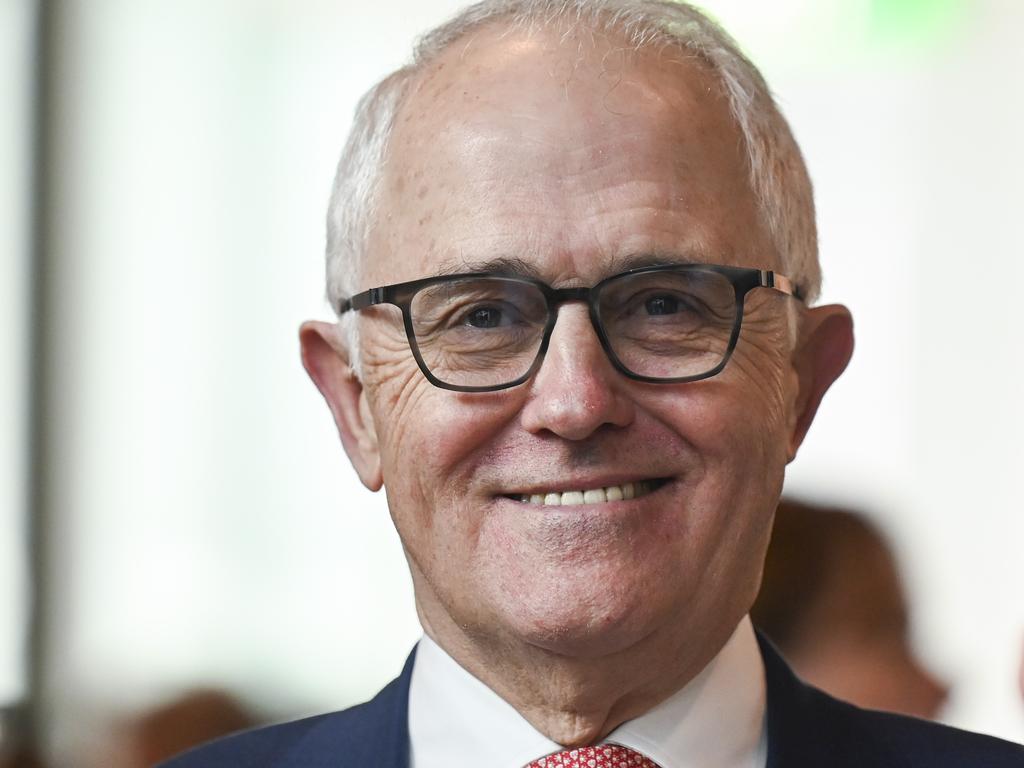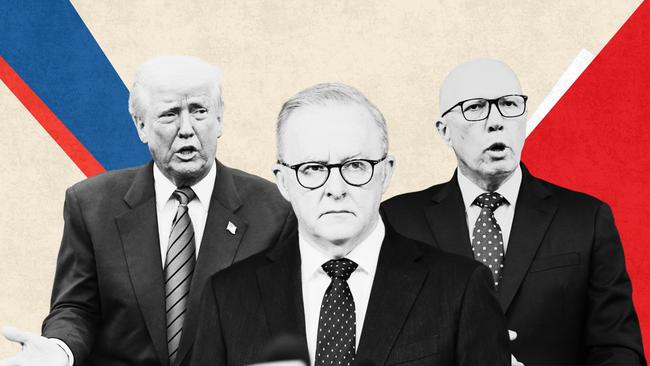
Malcolm Turnbull’s effort on Monday to secure a “fundamental rethink” of the Australian-American alliance generated a broad consensus that the Trump presidency means deep changes in the alliance – probably the most profound recalibration in its 75-year history.
While Turnbull’s opposition to the AUKUS nuclear-powered submarine project is unwavering, the reaction at the Canberra conference he convened came with a twist – the warning that AUKUS is in trouble but the immediate problem is homegrown, arising in Australia before it materialises in the US.
Turnbull’s purpose in hosting his Canberra forum was to penetrate what he called the “realities” of Donald Trump that Anthony Albanese and Peter Dutton “prefer to ignore”. The sentiment of the conference was that Trump is far more dangerous to the global order, and to Australia, than is publicly recognised by either the Labor Party or Coalition.
But Turnbull’s remarks in his National Press Club speech on Tuesday reveal his motivation is to intensify his campaign against AUKUS based on his belief there is “very little prospect” of Australia getting the Virginia-class submarines the US has pledged to sell to Australia under the agreement.
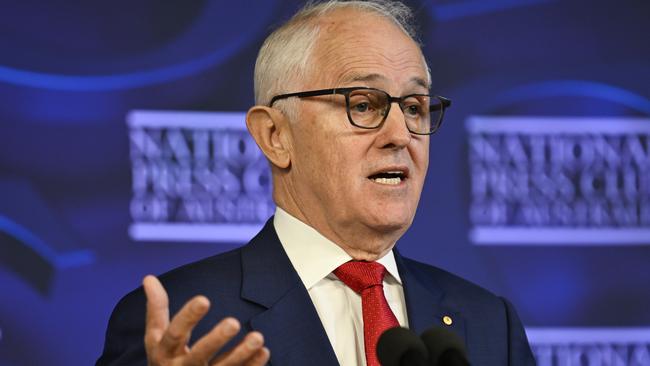
This is a frontal assault by Turnbull on the joint Labor-Coalition position. It has become a personal obsession and crusade. Turnbull has never recovered from Scott Morrison’s abandonment of the conventional submarine deal Turnbull did with the French. He brands AUKUS as “born in deceit” and perpetuated by leaders “sucking up” to the US and engaged in dishonesty about the project.
But Turnbull has conflated two issues. While it is essential for Australia to reassess our ties with the US, his insistence that Albanese and Dutton must now adopt a tougher and aggressive stand towards Trump – he censured them to “get off your knees and stand up for Australia” – constitutes a demand that, right now, is pure folly. This is advice no responsible PM would follow.
Australia must defend its interests, but we are not Canada. Premature gestures of toughness towards Trump have no place now, when we still await Trump’s Indo-Pacific thinking, and when strength will be required further down the track. This was bad, self-glorifying advice from Turnbull.
Obviously, Albanese and Dutton will reject any of Trump’s tariff decisions this week that damage Australia. But this cannot obscure the broader challenge Australia faces from Trump’s transformational policies that were effectively canvassed at Turnbull’s Monday forum.
Former departmental head Heather Smith told the opening session: “The fragmentation of the international economic system is now a fact. The post-Cold War order isn’t collapsing, it has collapsed. The US is dismantling the foundations of its global hegemony, along with the norms and values that have underpinned the US-Australia relationship. And this dismantling cannot be reversed by a change of administration – once gone, always gone.
“The US has adopted a mercantilist view of the world with conflicting goals – where tariffs are the answer to everything. We are in uncharted waters. It will be lonelier and more fraught for Australia in this multipolar world – as demonstrated by both the US and China having engaged in economic coercion against us.
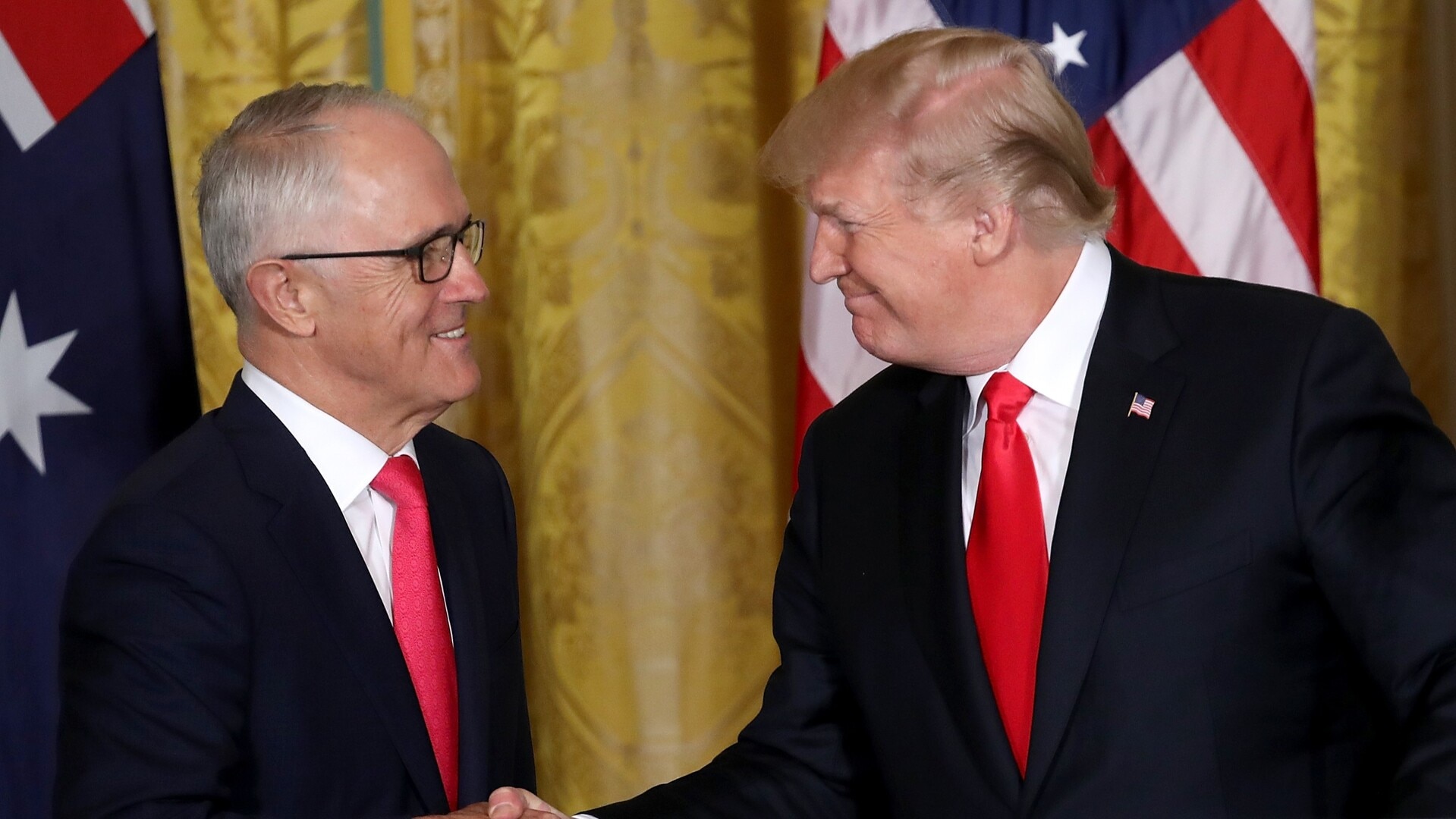
“To say that Australia is not well positioned is an understatement. It’s a dog-eat-dog world. But our political and some of our bureaucratic class are largely admiring the problem. So the biggest challenge to overcome is the inability of our political class to position Australia for this new world.”
The universal sentiment was that Australia must become more self-reliant in defence. Indeed, this will be a Trump demand. It is an essential but insufficient response. How self-reliant is the question. One polarity was offered by ANU professor Hugh White and the Lowy Institute’s Sam Roggeveen basically saying Australia needed a capability to defend itself – and that this is achievable.
Yet it heralds a pivotal change in our national existence and a defence budget at least in the range of 4 to 5 per cent of GDP. Roggeveen said while Australia long had a fear of abandonment, when it happens, we respond effectively. White said Trump “is doing us a favour” – he was exposing the fraudulent assumptions of our defence policy: if the US faced a military challenge from China then it would confront “a war it doesn’t want and cannot win”.
Smith said Trump was “clearly not interested in retaining US primacy” – a decisive but probably true assessment. White said effective deterrence meant convincing your opponent you are willing to fight a war and, judged by this test, Trump was unwilling to run effective deterrence against Russia or China.
Yet there was an unreality about the cost of self-reliance. Smith said economic success at home was “central” to Australia’s ability to project power. The domestic debate about economic reform and productivity should be recast: improved economic performance is now a security imperative. Yet the politicians still cannot talk like this.
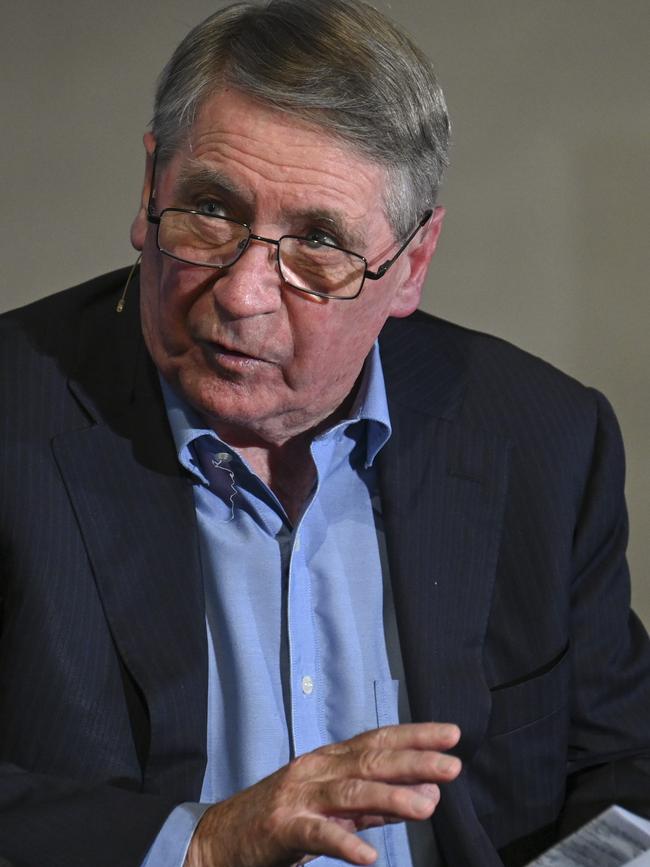
Richard Denniss, from the Australia Institute, asked what will become smaller to finance a bigger defence budget. Was this about higher taxes and less welfare? The central problem, of course, is the public won’t accept defence at 4 to 5 per cent of GDP, short of a major crisis.
White offered the most contentious view, saying he believed the US wanted either regional primacy or no regional role, a view that was widely disputed. Former Defence and DFAT chief Dennis Richardson said regardless of who was the US president, given the power of the US, Australia would always seek a close relationship with Washington. But he warned of risks to relations depending on how far Trump went; for example, if he used the military option to annex Greenland.
Former ambassador John McCarthy said Australia needed to revise its thinking about the US. He said Trump’s stance towards Asia was uncertain, but if Trump favoured a sphere-of-influence policy for China, that would have “enormous consequences” for Japan and South Korea before Australia.
McCarthy said China always believed the US alliance networks had given America a permanent strategic advantage over China – a devastating implicit critique of Trump. He said China could be seen as a “potential threat” to Australia and that meant the US alliance would remain an asset. McCarthy, contradicting White, envisaged a strategic equilibrium in the region was possible, with Australia working with the US to try to maintain that equilibrium.
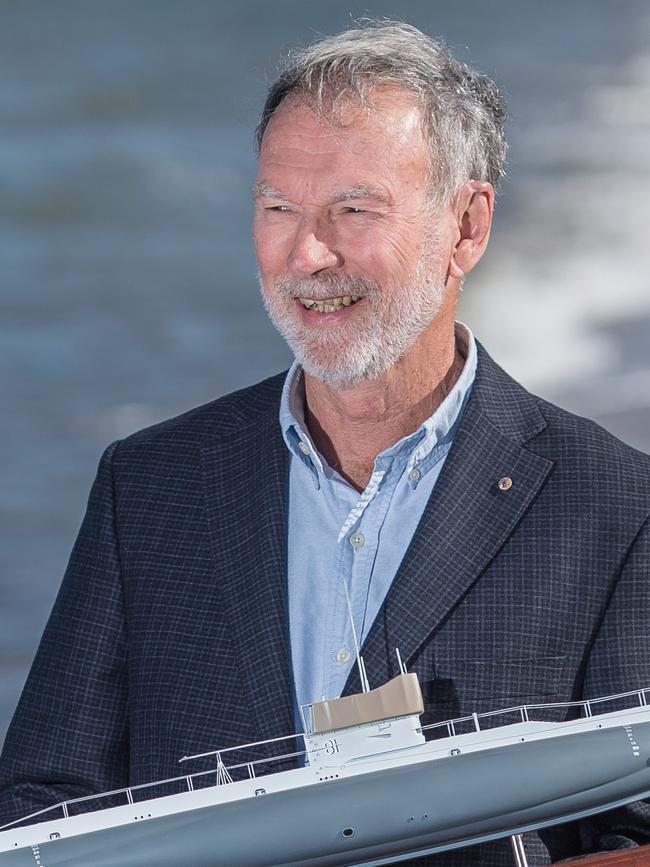
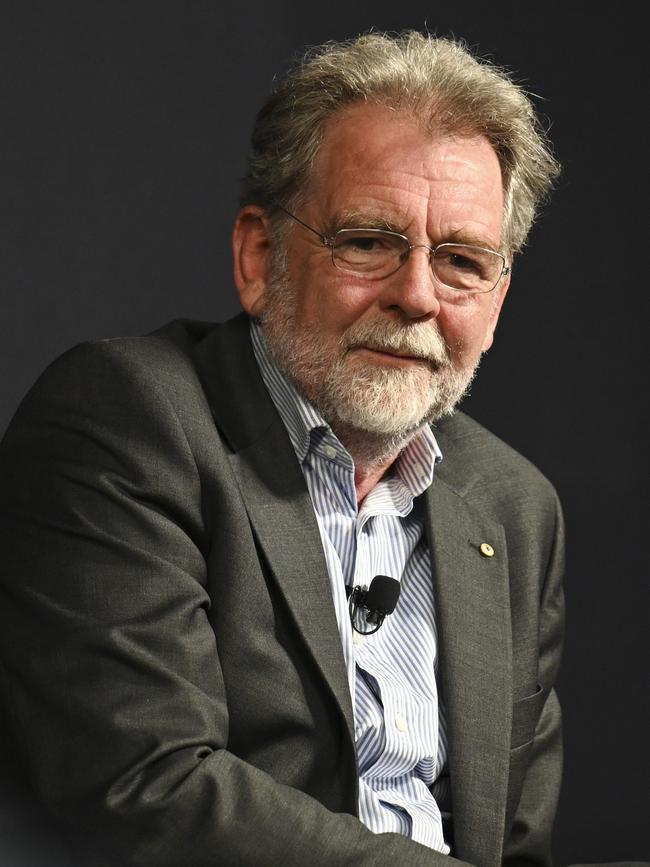
Former foreign minister Gareth Evans listed his four points of our calibration: less America, more self-reliance, more Asia, more global engagement. Analyst Alan Dupont warned Trump was a “radical change” to the US alliance, and the US was losing its deterrence value for Australia. Dupont articulated the broad position of the forum – don’t sever the alliance but recognise a Trumpian alliance will be more limited and transactional, and that Australia must do more, notably building a world-class defence industry.
Addressing the AUKUS conundrum, Richardson contradicted Turnbull, saying the “worst possible” option for Australia was changing submarine policy yet again. “If we are going back to start again, we have learnt nothing,” he said. Richardson agreed there were “risks” with AUKUS, but “the biggest risks were in Australia” and came under three headings: political will, the budget and organisation.
This is a critique of the Albanese government. While Turnbull focused on possible US non-compliance next decade – and there are genuine concerns – the more immediate test is whether Australia is equipped to meet the unfolding AUKUS timetable in the next few years.
Turnbull was searching for a Plan B. Rear Admiral Peter Briggs offered a passionate case for a switch to the French nuclear-powered Suffren-class submarine, but his passion was not widely shared.
In his speech on Tuesday Turnbull said a Plan B was needed, but he didn’t embrace a specific option, calling instead for the politicians to admit the problems in the AUKUS project. His plea will fall on deaf ears.




